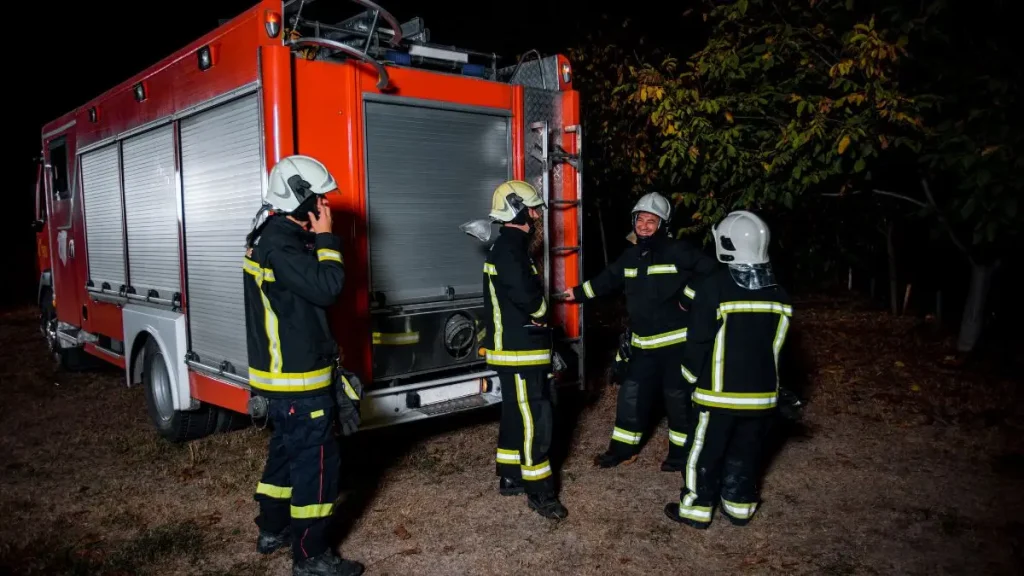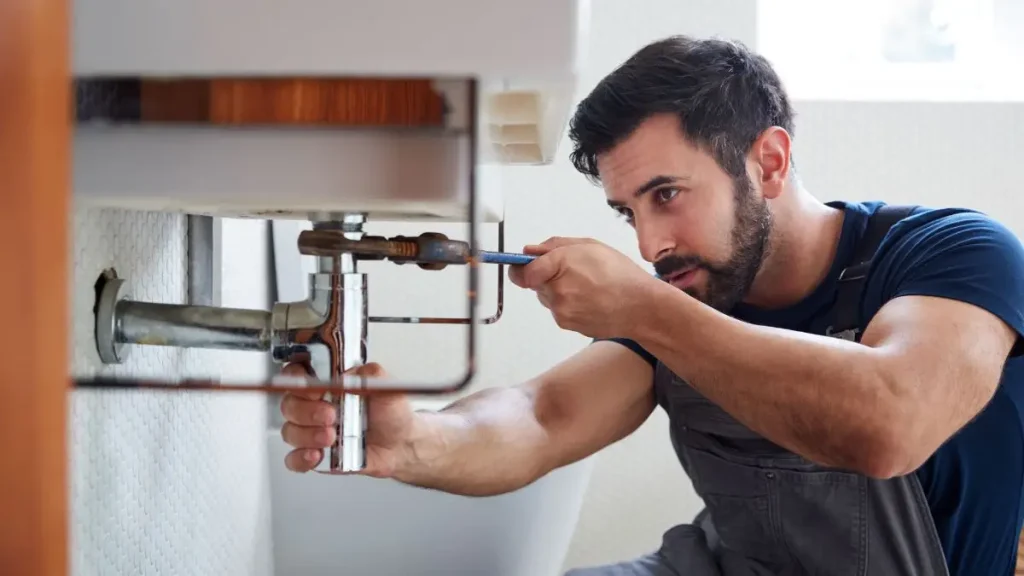Hydrochloric Acid Spills in West Hartford Home, No Injuries Reported
I’ve seen a lot in my time reporting safety incidents, but this one hit a little different—because it could’ve happened in any of our homes.
On a quiet Monday morning around 10:30 a.m., a homeowner on Lawler Drive in West Hartford made a call that likely prevented a disaster. They’d found a leaking container of hydrochloric acid in their basement—a chemical that’s not just corrosive, but downright dangerous when it escapes containment.
Within minutes, the Connecticut Department of Energy and Environmental Protection (DEEP) was on-site. West Hartford Fire Department’s Ladder 4 pulled in shortly after, led by Lt. Bob Howe. It wasn’t just a routine visit—this was a coordinated hazardous materials response, and it escalated quickly.
Multiple fire units responded, including Truck 3, Squad 1, and the Fire Marshal. AMR and local police were also there to support. The response was serious because this kind of chemical leak can create toxic air, damage surfaces, and put people and pets at immediate risk.
Thankfully, no one was hurt. But this wasn’t just another call—it was a wake-up moment for any of us storing old containers in a basement or garage without thinking twice.
Have you ever checked what’s gathering dust under your sink or in your storage room? Let me know—what’s the one household chemical you’re unsure about storing safely?
From First Call to Final Clearance — How It Unfolded
If you’ve ever wondered how fast first responders really act when something dangerous happens at home—this incident tells you everything.
It started around 10:30 a.m. when the homeowner contacted Connecticut’s Department of Energy and Environmental Protection (DEEP) after noticing the leak. DEEP got there first, but West Hartford Fire Department’s Ladder 4 wasn’t far behind. By 10:33 a.m., they were on scene, led by Lt. Bob Howe.
But it didn’t stop with one truck.
Within minutes, additional fire units showed up: Truck 3, Squad 1, Medic 21, Car 4, Car 1, and Fire Marshal 2. Police officers and AMR were also called in for support. It became a full-scale hazmat response, right in the middle of a quiet neighborhood.
By noon, everything was declared safe. The response was quick, serious, and well-coordinated—something you’d expect in a commercial zone, not a family home.
This wasn’t just about showing up—it was about showing up with a plan, and that’s what they did.
What Each Agency Did — And Why It Mattered

Let’s be real: when a chemical like hydrochloric acid is leaking inside your house, you don’t want just anyone walking in. You need a team that knows what they’re doing.
DEEP was already on-site when the call went out to West Hartford Fire. Ladder 4 got there first, but what followed was a full hazmat coordination. Firefighters didn’t just rush in. They suited up with specialized gear, entered carefully, and monitored the air quality in every part of the home.
This kind of scene isn’t just about cleanup—it’s about controlling the environment and making sure no one breathes in something they shouldn’t.
Even after the immediate danger was handled, the homeowner had to bring in a professional environmental cleanup contractor to finish the job. That’s how serious these leaks can get.
I say this not to scare you—but to remind you that you’re not alone. When something like this happens, there’s a system in place. And in this case? It worked.
Similar rapid emergency responses were seen when a North Plainfield home exploded following flooding and a gas leak, highlighting how fragile everyday systems can become.
Why Hydrochloric Acid Is So Dangerous Indoors?
If you’ve never handled hydrochloric acid, count yourself lucky. It’s not the kind of stuff you want leaking in your basement.
This chemical is highly corrosive. It can eat through metal, concrete, and if inhaled—it can burn your lungs. Even a small spill can release fumes that irritate your nose, throat, and eyes. That’s why hazmat crews don’t take chances. They gear up, seal off the area, and treat it like the threat it is.
You might be thinking: “Why would anyone even have that at home?” Fair question. Hydrochloric acid can be used in cleaning bricks, pools, or even some metalwork. But unless you’re trained—or extremely cautious—it’s more risk than it’s worth.
According to Patch, the homeowner had stored it in the basement. No one expected it to leak… until it did.
This wasn’t some industrial accident. It was just a bottle left sitting in a quiet Connecticut home.
In fact, some homeowners recently shared similar close calls—like chemical fumes in a closed basement—on WhatsApp community safety channels that track everyday hazards and local incidents.
Could This Happen to You? Common Mistakes You Might Be Making
I hate to say it, but yes—it could.
Because here’s the truth: most of us have a few things stashed away in the garage or basement that we haven’t thought about in years. Old cleaning supplies, paint thinners, garden chemicals… Maybe you’ve even got something in a rusting container you haven’t touched since 2016.
That’s exactly how situations like this begin.
In this case, the acid had been stored for who knows how long, and over time, the container started to fail. The fire department later said this was a powerful reminder about the dangers of improper chemical storage—and they’re absolutely right.
You don’t need to be a chemist to stay safe. You just need to check what’s in your home and ask yourself, “Is this worth the risk?”
And it’s not just chemicals—a home in Garnett turned into a hazard zone after a carbon monoxide exposure, reminding us how invisible risks can become deadly.
What You Can Do Today to Stay Safe?
I’m not writing this to make you panic. I’m writing this so you can take one or two steps right now that might save your health—or your home—later.
Here’s where to start:
- Go through your storage areas. Check your basement, garage, under the sink. Look for anything in rusty, cracked, or unlabeled containers.
- Label what you keep. If you really need something like bleach, ammonia, or pool cleaner, make sure it’s in a proper container with the label intact.
- Don’t mix chemicals or store them too close together. Some combinations can trigger chemical reactions you don’t want to see.
- Use well-ventilated areas only. Avoid enclosed spaces for anything corrosive or fume-heavy.
- Dispose responsibly. If you’re not sure how, call your town’s waste department or DEEP.
Safety isn’t about being perfect—it’s about being intentional. The homeowner in West Hartford did the right thing by calling for help. You can do the right thing by checking your home before something leaks, spills, or burns.
I’m curious—have you ever found something in your home you weren’t sure was safe to keep? Drop it in the comments. Someone else might be wondering the same thing.
What You Should Do If You Ever Find a Chemical Leak at Home?

I hope you never have to deal with this. But if you do—knowing what to do in the first few minutes can make all the difference.
Here’s the protocol I’d follow, and what experts recommend:
- Don’t touch or move anything. Even if it looks like a small spill, chemicals like hydrochloric acid can burn your skin or release dangerous fumes.
- Ventilate, if it’s safe. If you can open windows or doors without entering the affected area, do it carefully. Otherwise, stay out.
- Get everyone out of the house. Kids, pets, yourself—don’t wait.
- Call your local fire department or DEEP. These professionals know how to handle this. Don’t try to DIY the cleanup.
- Inform responders about what the chemical is, if you know. That info helps them plan their response faster.
What you shouldn’t do? Pour water on it, try to clean it up with a mop, or seal the room and walk away.
If you’re unsure, always lean on the side of caution. The homeowner on Lawler Drive did—and it prevented something far worse.
Sadly, some families don’t get warnings at all—like in a recent case where one person was found dead inside a Maine home after a fire, with no time to react.
5 Takeaways That Could Make Your Home Safer Today
After everything I’ve read, seen, and written about this incident, here’s what sticks with me—and what I think you should walk away with too:
- Old chemicals don’t just “sit there.” Over time, they degrade. And sometimes, they leak.
- If it’s not labeled, it’s not safe. Whether it’s bleach or something industrial, you need to know what it is—and when it was last touched.
- Basements aren’t safe storage for everything. Especially in humid areas or with kids around.
- There’s help available. You’re not expected to handle this alone. West Hartford Fire, DEEP, and licensed contractors know what to do.
- It’s better to be early than too late. The sooner you act, the smaller the problem gets.
What happened on Lawler Drive wasn’t just a chemical leak—it was a reminder that homes don’t come with hazard warnings. We have to make them safe ourselves.
If you take five minutes today to check your basement or shed, that’s a win. And if you’ve already done it? Let me know what you found—or what surprised you most.
For more real-life home safety stories like this one, check out our Home Incidents section on our website.
Disclaimer: This article is for informational purposes only and does not substitute professional safety or emergency guidance. Always contact your local fire department or environmental agency if you encounter hazardous materials. The content is based on public reports and official statements at the time of writing.


